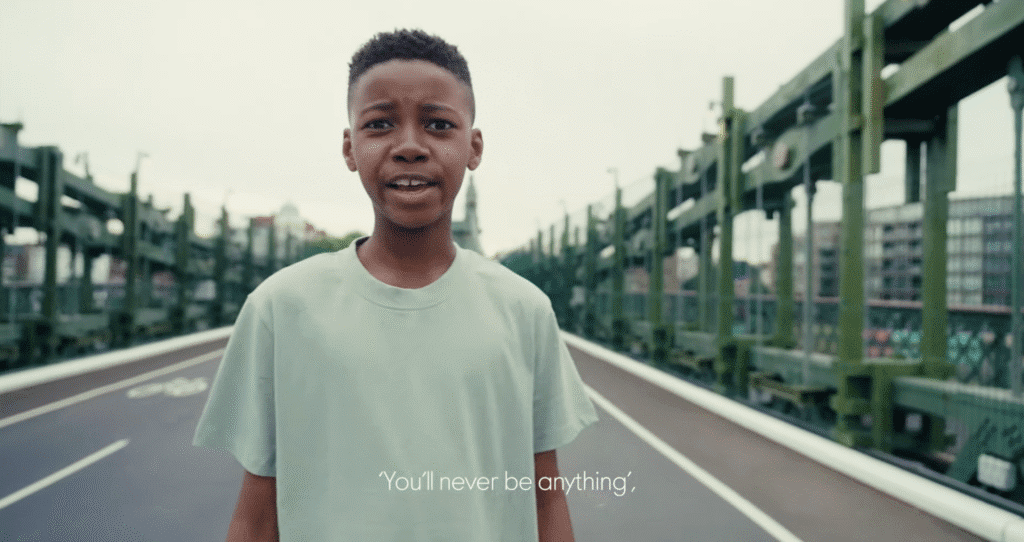Earlier this spring, Words Matter convened a pivotal event in the House of Commons with a clear and urgent message: If this Government is serious about raising the healthiest generation, it must address one of the most pervasive and damaging threats to children today – verbal abuse from adults.
The scale is shocking. Two in five children in the UK experience verbal abuse from adults in their lives – parents, carers, teachers, coaches, primarily.
Of those, over half endure this harm weekly. Ten per cent face it every single day. This is not an abstract, marginal issue – it is endemic, corrosive, and entirely preventable.
As Professor Peter Fonagy outlined, verbal abuse takes many forms – from overt hostility like name-calling to rejection, terrorising threats, and inconsistent emotional responses – all of which can erode a child’s trust and security.
And yet, verbal abuse remains the silent epidemic of childhood maltreatment – widespread, devastating, and largely ignored by our policy frameworks.
There is no national definition. No routine measurement. No consistent guidance. It falls between the cracks of safeguarding, public health, and education policy – as if words, unlike physical abuse, do not leave lasting marks.
But the science is unequivocal. Verbal abuse rewires the developing brain. As Professor Eamon McCrory put it, harsh words from trusted adults are biologically embedded betrayals.
They shape how children see themselves and how they move through the world, often with lifelong consequences.
Depression, anxiety, PTSD, loneliness, and even romantic relationship difficulties are all linked to repeated exposure to critical, belittling, blaming, or shaming language.
In the words of Professor Andrea Danese, research shows that the psychological and biological effects of verbal abuse are comparable in magnitude to those of physical and sexual abuse.
As Professor Karen Hughes’s analysis of Adverse Childhood Experiences shows, younger generations are reporting more verbal abuse than any other form of harm.
So why does this continue to be overlooked?
Part of the problem is cultural. As a society, we are still far too comfortable minimising the impact of harsh words. We fail to recognise verbal cruelty of children by adults, whether quiet, subtle, or shouting and screaming.
Too often, we expect parents, carers, and educators – many of whom are under immense pressure and may not have experienced emotionally healthy communication themselves – to carry the responsibility for change, without meaningful support.
The truth is this: Prevention is possible. Parenting and caregiving are not just instinctive – they are skills that can be learned, practised and supported.
Evidence shows that parenting programmes are among the most effective interventions for reducing mental health difficulties in children.
They work. But they remain patchily available, underfunded, and often culturally stigmatised.
This is a political and public health issue as much as it is a social one.
At our event, MP Sharon Hodgson spoke candidly about her years in Parliament as Shadow Minister for Public Health and for Children.
She admitted that, across nearly a decade of policy briefings, verbal abuse wasn’t mentioned once. The omission is staggering. But it is also an opportunity.
The Government has pledged to break down barriers to opportunity and to raise the healthiest generation of children in history.
If that commitment is to mean anything, it must include the language we use with our children – and the societal norms we reinforce through policy.
We need a clear, nationally adopted definition of verbal abuse. We need to track it systematically in health, education, and safeguarding systems.
We need trauma-informed training about childhood verbal abuse and how to communicate, so children can thrive with every adult working with children.
We need a national public health campaign to shift the cultural norms that allow verbal cruelty to be dismissed as behaviour management and tough love.
This isn’t hypothetical. In Wales, the new Whole-Society Trauma Framework is beginning to embed this kind of thinking across public services. It’s time for Westminster to follow suit.
Verbal abuse doesn’t just hurt feelings. It derails development, shapes futures and increases the risk of future violence, mental illness, and incarceration.
While we delay action, over 270,000 children in the UK are waiting for mental health care. What’s more, the cost to society is £239 billion globally per year.
Earlier this month, as part of the Spending Review, the Chancellor announced new investment to expand the reach of mental health support teams to all schools.
This is really welcome, but we must see this cash investment met with a political investment.
We must stop ignoring verbal abuse when we are talking about children’s wellbeing and future prospects.
It is a central, modifiable risk factor for the crisis in children’s mental health. It deserves to be front and centre of any serious national strategy.
Words matter. They stick. They shape who we become. It’s time our politics caught up with what every child knows instinctively: How we speak to children matters as much as how we care for them.
Let’s raise a generation who are not just safe, but seen, respected, and believed in
Poem film and campaign details:
In June, Words Matter released a powerful new film across its social channels to spark national conversation about the lasting impact of adult language on children.
Featuring a moving poem by Tally Gilbert, performed by 13-year-old Ethan, the film was viewed over 300,000 times on Instagram within 24 hours.
Shot in a single take at dawn on Hammersmith Bridge, Ethan speaks directly to the camera about the unseen scars harsh words can leave on children – wounds that can last a lifetime.
Part of Words Matter’s ongoing campaign to end childhood verbal abuse, the film delivers a painful truth many adults will recognise – the words spoken to us as children, whether kind or cruel, echo for years.
.Jessica Bondy is the founder of Words Matter, the first charity in the world dedicated to ending childhood verbal abuse by adults – www.wordsmatter.org.


